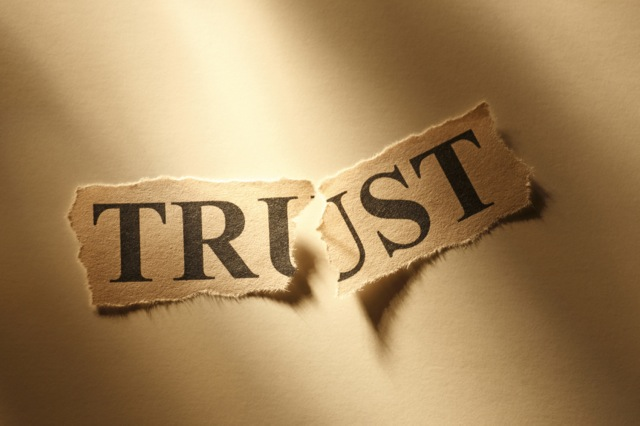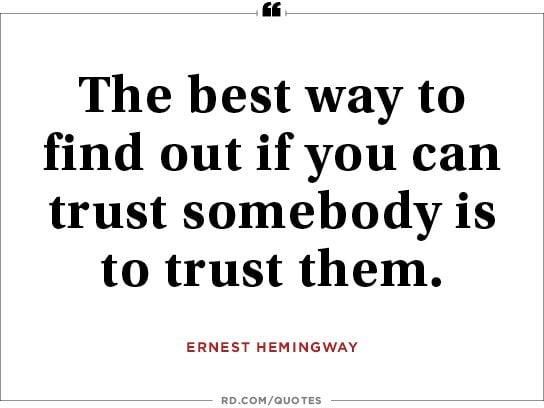Something came up for discussion and I decided to do some research on the subject, yes I’m a girl who does her homework…. 🙂 So I’m gonna quote some parts I’ve found and that got my interest on the matter. Feel free to comment or leave critic if you don’t agree or just have a different opinion.
What is the Truth?
The truth is personal; it is what is so for you. “Truth” is not synonymous with “reality” or “facts.” As eloquently put by Anais Nin, “We don’t see things as they are. We see them as we are.”
The Truth is our own perception of reality, our own “story” of ourselves and the world. It is colored by our nature, experiences, perceptions, interpretations, etc. What is true for us may not be provable in the traditional sense, but to a considerable extent it defines us and how we think and interact.
When you speak the truth to someone you share yourself with them in a very deep way. In sharing your truth you tell them who you are and what you really think.
There are lots of reasons why we don’t always tell the truth. Let’s look at the most common reasons, what they are costing us, and how we can move past them if we choose to.
Reasons Why You Might Not Tell the Truth:
1. You don’t know the truth yourself
It stands to reason that you cannot share your truth if you are not aware of it. Many times we don’t know the truth of a situation simply because we have not asked ourselves, or examined, what we believe. And sometimes we don’t access our own truth because we would rather not know the answer!
Telling the truth requires awareness. One method (suggested by Thomas Leonard) for becoming more aware of your own truth is to “Reduce or eliminate anything that clouds or numbs your ability to recognize truth as it emerges” (e.g., adrenaline, stress, excessive busyness, mind-altering drugs or alcohol, addictions, etc.). Another way is to consciously ask yourself what you believe to be true in each situation, and be willing to challenge yourself and your beliefs.
2. You fear the consequences
Sometimes when you tell the truth there are potentially significant consequences either for yourself or others. You may find it easier to tell the truth only when it is non-threatening. But what is the hidden cost? When avoidance of consequences becomes paramount we end up only telling the truth when it is “convenient” and carry around with us an uncomfortable inventory of past censorships and un-communicated thoughts and feelings.
Here are two ways you can evolve to allow yourself the luxury of being able to tell the truth:
* Increase your Personal Standards and become a person who puts truth ahead of other priorities (e.g., goals, objectives, needs).
* Reduce the risks associated with telling the truth by building reserves in all areas of your life (e.g., time, space, money, friends, etc.) so that you can afford the consequences of the truth.
3. You think the other person will not hear, or be able to handle, the truth.
You can control how you speak your truth, but you cannot control how someone else hears, interprets, or reacts to it. In trying to protect or shield another from the truth you are in effect diminishing them – restricting their access to important information and downplaying their potential for resiliency. If you speak the truth with compassion and let the other person know you are coming from a place of wanting only the best for them, chances are they will be able to take what you are saying in a positive way and draw upon their own internal resources to react appropriately. Don’t underestimate them. Show your belief in their ability to handle it. Offer them the gift of your truth and give them the opportunity to surprise and delight you with their response.
4. You don’t want the other person to tell you their truth.
Sometimes you just don’t want to ruin a perfectly good, but superficial, relationship by starting to tell the truth. After all, if you tell your truth, it is only equitable that you allow the other person to tell theirs. And what are the risks to that?
* The other person might say something which conflicts with your view of the world.
*The other person might criticize you or what you do.
*You risk deepening the relationship by telling the truth.
How can you overcome your fear of hearing the truth of another? The following are a few techniques that can prove helpful:
*Recognize that each person has their own truth, and approach their truth with curiosity instead of fear. Realize that their truth need not invalidate your truth.
*Learn to hear criticism not as something to be avoided but as instruction on what it takes to win!
*Recognize that if you deepen the relationship you will be free to be who you really are without pretense and without expending energy to keep up your facade and walls. In a deep and honest relationship you can clearly state what it is you need and want, and your requirements are more likely to be heard and met by the other person.
The bottom line.
Telling the truth requires skills and awareness; awareness to know your own truth, and the communication skills to express it in a way that touches another – not with brashness and brutality but with compassion, kindness, and subtlety.
Source: WITI
Off course there’s more from other sources.:
I wont quote this one because I believe this should be read as a whole. Its a real large file so I suggest just click the link.
Heres a interesting document about the truth in PDF format: Telling the truth – Does it pay?
And another : Telling the truth: creating authentic relationships
Sometimes it is hard to tell the truth because:
* We don’t trust our perceptions.
* We are afraid of hurting the other person.
* We are afraid we will make them angry or they will abandon us.
* We don’t realize that relationships are about relating.
* We have been taught to take care of others by not being ourselves.
* We assume that we are 100% responsible for the relationship.
* We see ourselves as powerless in the relationship.
* We are afraid of being transparent, real and seen.
* We are afraid of our power.
If we don’t tell the truth, the other person has no way of knowing who we are, what we are thinking or feeling, or how they are impacting us. We assume (perhaps unconsciously) that they do not have the ability to navigate through their own feelings in response to us. Although this may be true, by not telling the truth, we rob them of the opportunity to rise to the challenge of relating to who we are, of having a truly authentic relationship with us.
Learning to tell the truth is a big process. Often we have been taught since we were little to put other’s feelings ahead of our own. We have been taught that relating is being the same as the other, rather than allowing our differences. In order to alter this and honor ourselves, we need a new perspective. We need to know that as we take action and speak the truth in a way that empowers us, our lives will re-align. Our actions have impact and allow us to change, creating our lives. We are no longer held hostage by our fears of voicing ourselves, of being seen. As we become truthful, those we interact with get to choose whether or not they can also step up to the challenge. In either case our relationships will change. We will become closer to those, who whether they like it or not, support hearing our truth and honesty. These relationships will deepen and we will no longer feel as alone. We may lose relationships with those who do not want to hear how they affect us, who do not want to know who we are. When this happens, we may experience grief. Rather than being trapped in resentment, or fear, we have the opportunity to grieve and let go of our expectations, accepting the limitations of that person and relationship. A reorganization of our lives and relationships occurs.
How do you not tell the truth? Look at someone in your life who you don’t talk to directly about his or her impact on you. Imagine telling them something they do that is difficult for you. Notice what feelings come up: discomfort, fear, shame? Notice how you choose the feelings associated with not telling the truth: frustration, feeling trapped etc, rather than the feelings that emerge when you do tell the truth. Both sets of feelings are uncomfortable, but one will lead you to freedom and authentic, healthy relationships, and the other will keep you trapped and dis-empowered. It is your choice. What kind of relationships do you want to have? What kind of life do you want to live?
And this is what I want to leave it at. There’s much more to be said about telling the truth or keeping information. Especially when ppl are real close to us it matters more If you tell the truth or not. Then again… You never know who the other person is and at what place they might find them self one day. Some day you may have to depend on the other. And wont you wish you had dealed with a situation differently?
Thank you much for your interest in my blog. Hugs, Ela


